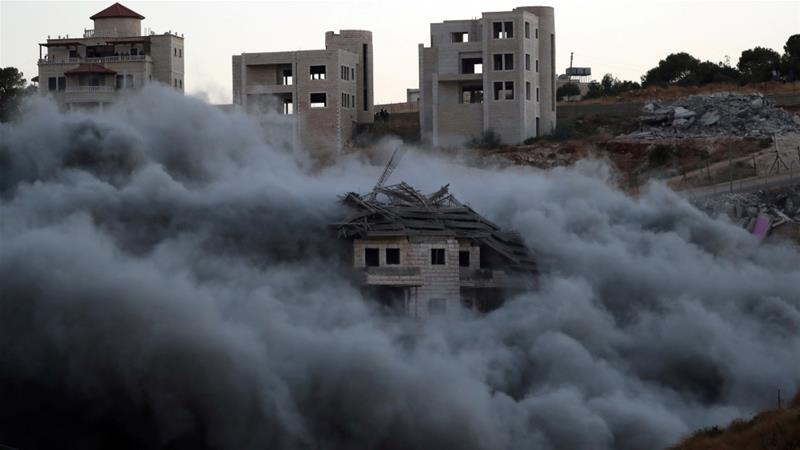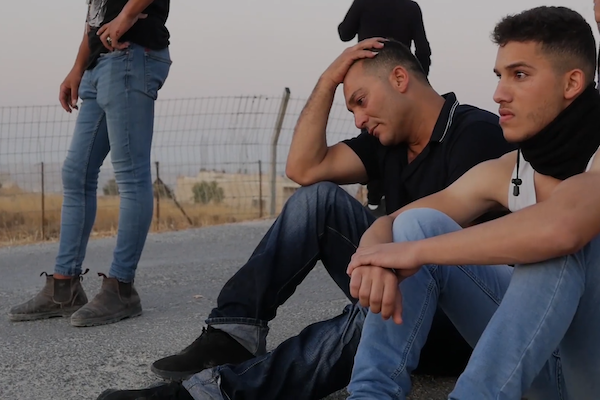Policies That Lead to the Violation of Human Rights
PALESTINE ISRAEL GAZA GENOCIDE, 5 Aug 2019
Amos Gvirtz – TRANSCEND Media Service
1 Aug 2019 – After we established the Israeli Committee Against House Demolitions (ICAHD) in 1997, an interesting debate developed among us: Were we a human rights organization or a political organization opposing the occupation? It should be remembered that human rights organizations in Israel and all over the world tried hard to separate human rights from politics. I raised an idea that seemed like a midway position between the two viewpoints. I argued that most of the human rights violations that we struggle against are not carried out by psychopaths who simply enjoy hurting their victims, but are carried out in the service of political-ideological goals. And if that were the case, then our struggle against them was, as a matter of course, a struggle against government policies.
After the 1967 war the Israeli government began a low profile policy of taking control over the occupied territories with the aim of annexing them. Settlements were established in order to create facts on the ground, and the Green Line was deleted from Israeli maps. But there was a problem: the occupied territories contained a large non-Jewish population and annexing them to Israel would change the demographic balance in a way that could lead to the end of the Zionist enterprise. To solve this problem the extreme right demanded the transfer of the Palestinians out of the country. Most Israelis, however, felt uncomfortable talking about this, so instead, the authorities began to impose harsh conditions on the Palestinian population in order to encourage them to leave (“of their own free will”), or in an attempt to reduce their living space.
In the Golan Heights this problem was solved during the 1967 war itself and in its immediate aftermath, when the majority of the Golan’s Syrian citizens became refugees. In the West Bank the solution was found with the aid of the Oslo Accords and the division of the West Bank into three areas according to the density of the Palestinian population. The densely populated areas became Bantustans under the control of the Palestinian Authority (Areas A and B), while the areas where the Palestinian population was sparse (Area C) were officially placed under full Israeli control, paving the way for their future annexation. In the meantime there were attempts to cause the maximal number of Palestinians to leave Area C and move to Areas A and B, or to leave the country altogether. This was done by systematic violations of the Palestinians’ human rights, such as land confiscations, the establishment and expansion of Jewish settlements, home demolitions, restricting access to agricultural lands, the theft of most water sources, restricting entry to the West Bank to spouses from abroad, etc.
However, there is a problem with this policy as well: it causes the Israeli army (IDF) to systematically violate military ethics and to act in violation of international law. Here the solution was found with the aid of very “creative” legal interpretations and in military regulations which create a façade of legal respectability to the one-sided war the IDF is waging against the occupied civilian population.

The demolition of a Palestinian building by Israeli forces in the village of Sur Baher on July 22, 2019. [Ammar Awad/Reuters]
And thus it happens that human rights organizations, when they come to advocate for the human rights of defenseless Palestinian civilians, are accused of political activity against the State of Israel. The accusers are engaging in a dangerous generalization. If the struggle against human rights violations means a struggle against the State of Israel, then it follows that Israel – in its essence, and not only in its policies – is a human rights violator. To be precise, what is happening is that we, in our very struggle for human rights – and without intending to – are struggling against the policies of the government of Israel. When we struggle for Palestinians’ rights over their landed property, we are struggling against the policies which attempt to confiscate their land. When we struggle for their right to a roof over their heads, we are struggling against the government’s policy of home demolitions. When we struggle against the theft of their water sources, we are struggling against policies which attempt to cause them to leave Area C or Palestine altogether. And so it goes.
We are struggling for policies which will include the protection of human rights. We believe that by doing so we are strengthening Israel and defending world Jewry – as opposed to those whose policies strengthen the desire to destroy Israel and encourage right-wing extremist regimes throughout the world, some of which are anti-Semitic. And herein lies the paradox: in our struggle for inclusive human rights policies, we are – inevitably – engaging in political activity.
__________________________________________
 Amos Gvirtz is founder of Israelis and Palestinians for Nonviolence, was chairperson of the Committee against House Demolitions, and a peace and human rights activist. He is a former Israeli representative to the International Fellowship of Reconciliation (IFOR) and wrote the book, Don’t Say We Did Not Know (working on the translation to English).
Amos Gvirtz is founder of Israelis and Palestinians for Nonviolence, was chairperson of the Committee against House Demolitions, and a peace and human rights activist. He is a former Israeli representative to the International Fellowship of Reconciliation (IFOR) and wrote the book, Don’t Say We Did Not Know (working on the translation to English).
Tags: Apartheid, Conflict, Fatah, Gaza, Geopolitics, Hamas, History, Human Rights, Indigenous Rights, International Relations, Israel, MATW, Media, Middle East, Military, Nakba, Nonviolence, Occupation, Oslo Accords, Palestine, Palestine/Israel, Politics, Power, Racism, Religion, Social justice, Torture, UN, Violence, Wall, War, West, West Bank, World, Zionism
Join the BDS-BOYCOTT, DIVESTMENT, SANCTIONS campaign to protest the Israeli barbaric siege of Gaza, illegal occupation of the Palestine nation’s territory, the apartheid wall, its inhuman and degrading treatment of the Palestinian people, and the more than 7,000 Palestinian men, women, elderly and children arbitrarily locked up in Israeli prisons.
DON’T BUY PRODUCTS WHOSE BARCODE STARTS WITH 729, which indicates that it is produced in Israel. DO YOUR PART! MAKE A DIFFERENCE!
7 2 9: BOYCOTT FOR JUSTICE!
This article originally appeared on Transcend Media Service (TMS) on 5 Aug 2019.
Anticopyright: Editorials and articles originated on TMS may be freely reprinted, disseminated, translated and used as background material, provided an acknowledgement and link to the source, TMS: Policies That Lead to the Violation of Human Rights, is included. Thank you.
If you enjoyed this article, please donate to TMS to join the growing list of TMS Supporters.

This work is licensed under a CC BY-NC 4.0 License.
Read more
Click here to go to the current weekly digest or pick another article:
PALESTINE ISRAEL GAZA GENOCIDE:
